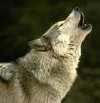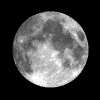
"I am glad I shall never be young without wild country to be young in."

There are those who would, sell, trade, or in someway capitalize on wilderness, wildlife, wild-lands and even genetic products of bio-chemosynthesis.
Your essay is, in contrast to a personal statement, an argument based on the authors' arguments.
The last time you wrote about what is wild in us and in yourself, to best define "self-willed" characteristics of nature. This essay is very different.
This is your second major essay. This important writing is a comparison and contrast of what the authors have argued is the many benefits of and even the necessity of wilderness, wildlife, wild lands and self-willed nature.
Minimally you should make an argument that reflects your understanding of all of the following authors:
What do you know these people are saying and show that frequently in your essay.
The goal of the assignment is to demonstrate in writing and verbally familiarity with passages in the books that reveal the real depth of your readings. This means your understanding of the clash–dialectical opposition between Nash and Pollan–, in order to better explain Nash's "island civilization" essay. But this is just the first step to seeing that there is a deeper conflict.
A Symbiotic Planet versus the End of Nature
That deeper conflict, contrast, or debate is between Margulis and Mckibben who would directly and indirectly argue that the world is changing abruptly and so rapidly that if we do not act, these consequences come into play:
1. By not acting we are actually doing something because the world is shifting in ways we cannot detect, but wildlife, fisheries and vegetation do reveal altered conditions unfavorable even to humans.
2. People are placed at risk and thus the obligations we have to maintaining some if not all of Nash's four scenarios for the future become even more imperative [necessary --the first priority].
3. We are not alone and must take steps to understand what "self-willed" natural areas are. This means developing further three ideas:
a) how wild areas are encompassed by watersheds,
b) how they are characterized by scenic, wildlife, and scientific values, and
c) how these remote areas may be of spiritual, recreational, or some tangible importance to people who know the ranges and fields or contours and the participants in these places.
4. In essence you are describing the multiple values of the countryside as embodied in wild areas extending what Aldo Leopold said so eloquently and explained sixty years ago.
Prepare to read sections of your essay to the class that weave authors together. Better essays will describe the role of contrasting arguments and the concept of feedback [ both kinds ] to explain why human action is crucial and protecting wilderness is at once a utilitarian, spiritual, logical, and scientifically necessary step to take because of what Edward, E. O. Wilson calls the "bottleneck" in the future of life and Mckibben foresaw as an atmospheric change of unprecedented proportions.
